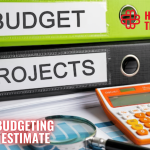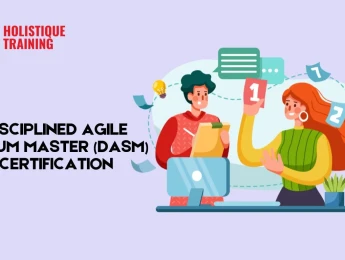Project management is a skill without which projects often run late. When they are finally delivered, they are also over budget. This is a failure for the organisation and money they cannot afford to spend. Sadly, a lot of this is down to poor project managers who do not understand the tools at their disposal and the importance of reliable cost estimates and how these can change at various stages of the project.
This course covered the best practices for estimating and accurately forecasting project costs. It looks at estimating budgets, pre-contraction service estimates, subcontractor estimates and more. You will learn to price, estimate general conditions, and negotiate contracts and unit-price estimates alongside a host of other valuable skills and techniques that will equip you to be a project manager who brings in their project on time and on budget. The skills taught here are a must-have for anyone involved in costing projects, and the value of this comprehensive course should not be overlooked.
Upon completion of this course, participants will be able to:
- Show understanding of methods used to plan and control resources.
- Demonstrate administration practices for the reporting and documentation of a project.
- Develop control and monitoring systems effectively.
- Understand project estimation techniques.
- Understand well the process of time-cost trade-offs
- Identify risks to a project
- To be confident with risk impact and demonstrate how to minimise them without slowing down the project
- Understand how these apply to the whole lifecycle from concept to a final detailed estimate.
- Understand estimates and the different types on offer
- Progressively and accurately estimate the cost of a project
- Confident in naming the different types of contract
- Understand contracts between parties with a distribution of risk
- Effectively argue with incentives to ensure the contract achieves the best results.
This course is intended for
- Procurement and supply chain professionals
- Engineering managers and professionals
- Project managers
- Cost and management accountants
- Technical team members
- Planning team members
- Investment department staff
- Anyone looking to upskill for future career advancement
Teaching takes place in a variety of settings, including face-to-face classroom teaching. It will ensure that participants can expand their knowledge of the subject and increase their skills. The course is delivered via various methods by a specialist tutor. This will include PowerPoint presentations, reviewing articles and other relevant materials, group or individual exercises and discussions. There may be some independent work set, and the course will require submitting articles to demonstrate understanding and an end-of-course test. Note-taking is encouraged, and you are welcome to use electronic devices.
The course manual will form part of the learning but will give you references for the future. You are encouraged to ask questions and, if needed, spend time one-on-one with your tutor to go over any issues. During your time in the classroom, you will network with peers in similar roles.
Day 5 of each course is reserved for a Q&A session, which may occur off-site. For 10-day courses, this also applies to day 10
Section 1: Project Scope Planning and Definitions
- What is Project Management?
- The fundamentals of scope planning
- What are work packages?
- Understanding the Scope Execution Plan
- Time Cost, Scope: meet the three constraints
- Best practice systems for project delivery
Section 2: Planning the Project Schedule
- What is the impact of interest rates on economic evaluation?
- The basics of work breakdown structure
- A look at Project Estimation
- What is a Gantt Chart, and how do you schedule baselines?
- What is Precedence Network Diagramming?
- How can you build schedule logic?
- What does the term float mean?
Section 3: Network Scheduling and Critical Path
- Understanding the process of activity development
- What are network calculations?
- What does forward or backward pass mean?
- How to process lag and lead scheduling
- PERT: Program evaluation and review technique
- What is a trade-off of time, cost and scope?
Section 4: Project Control and Advanced Planning Methods
- Line of Balance Schedule preparation
- What are Project Control Systems?
- Understanding Earned Value Analysis
- Applying Knowledge to Earned Value Reporting
- Resource prioritisation with Resource Allocation Algorithms
- Learning and practising the time and cost tradeoff
Section 5: Schedule Acceleration and Progress Reporting
- Monitoring and progress tracking
- Accelerating the schedule: best-practice options
- What does crashing the schedule mean, and why would you do that
- What is Lean methodology
Section 6 : Cost Estimating Basics
- The basic definitions of project management
- What are Cost Selection Methods?
- setting up for success with typical project terminology
- The cost management of a project
- How to estimate the cost
- How to budget the cost
- How to control the cost
- Time, Cost, Scope: the triple constraints
- Cost estimation: how project management inputs apply
- Cost allocation and resources
Section 7: Developing The Project Budget & Cost Control
- Cost budgeting: The project management input
- What resources are required?
- Project Costs: Indirect and Direct
- The probability, formulae and calculation of the standard deviation
- Understanding the Earned Value Control Process
- What are schedule variances?
- Earned Value Reporting and Earned Value Analysis
- Quantification and Analysis of Project Variance Schedule Performance
- Index (SPI) and Cost Performance Index (CPI)
- Estimate To Complete (ETC) v Estimate At Completion (EAC)
Section 8: Cost of Risk Management
- The management of risk analysis
- How do we identify risk?
- Qualitative and quantitative risk analysis
- Using a risk & probability matrix
- What is a Risk Response Strategy?
- Understanding contingency reserve
- Creating a watch list and acceptance Strategy
- Risk & Cost: The S-Curve
Section 9 : Compensation Arrangements and Types of Contract
- Managing procurement
- What is a ‘Make or Buy’ analysis?
- Understanding procurement documents
- What are the different contract types
- Risk distribution impacts in contracting
- Creating project risk profiles
- Contract types using risk distribution
- Fixed Price Contracts: Firm v Economic Adjustment
- Incentive Contracts: Fixed Price v Cost Plus
- Cost-Plus Contracts: Reimbursement/Plus Award Fee/Plus Fixed Fee
- Calculating time and materials used
Section 10: Defining the Cost of Quality
- The essentials of quality planning & assurance
- Benchmarking and quality control
- What is Pareto Analysis?
- Fishbone: cause & effect
- Control chart, grade and quality
Upon successful completion of this training course, delegates will be awarded a Holistique Training Certificate of Completion. For those who attend and complete the online training course, a Holistique Training e-Certificate will be provided.
Holistique Training Certificates are accredited by the British Assessment Council (BAC) and The CPD Certification Service (CPD), and are certified under ISO 9001, ISO 21001, and ISO 29993 standards.
CPD credits for this course are granted by our Certificates and will be reflected on the Holistique Training Certificate of Completion. In accordance with the standards of The CPD Certification Service, one CPD credit is awarded per hour of course attendance. A maximum of 50 CPD credits can be claimed for any single course we currently offer.
- Course Code PF1-102
- Course Format Classroom, Online,
- Duration 10 days













